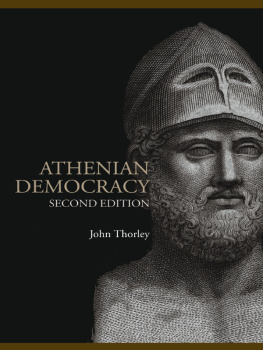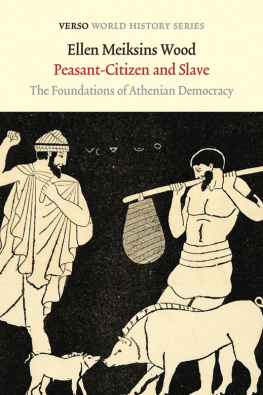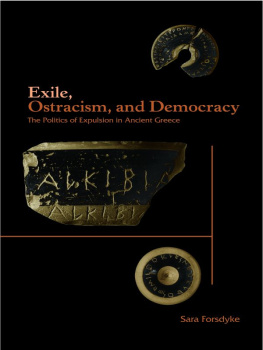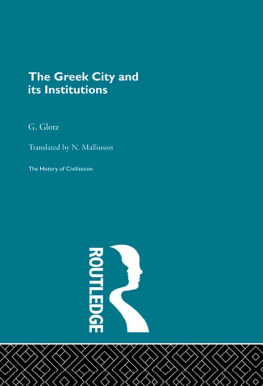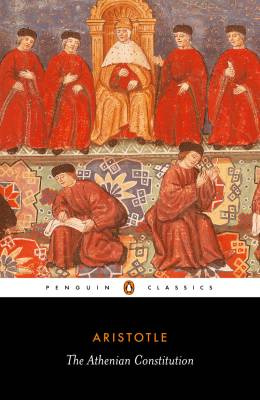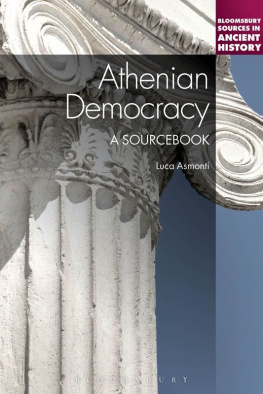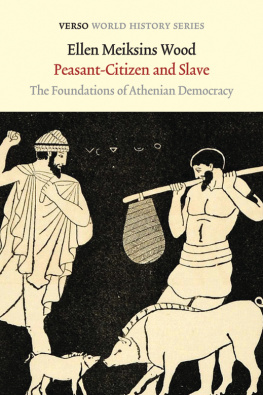ATHENIAN DEMOCRACY
The fifth century BC witnessed not only the emergence of one of the first democracies, but also the Persian and the Peloponnesian Wars. John Thorley provides a concise analysis of the development and operation of Athenian democracy against this backdrop. Taking into account both primary source material and the work of modern historians, Athenian Democracy examines:
The prelude to democracy
How the democratic system emerged
How this system worked in practice
The efficiency of this system of government
The success of Athenian democracy.
Including a useful chronology and bibliography, this second edition has been updated to take into account recent research.
John Thorley was formerly head of Trinity School, Carlisle, and the Principal of Charlotte Mason College, Ambleside, until his retirement in 1994. He continues to teach history at Lancaster University and St Martins College, Lancaster.
LANCASTER PAMPHLETS IN ANCIENT HISTORY
GENERAL EDITORS: ERIC J. EVANS AND P.D. KING
Hans A. Pohlsander, The Emperor Constantine
David Shotter, Augustus Caesar
David Shotter, The Fall of the Roman Republic
David Shotter, Nero
David Shotter, Roman Britain
David Shotter, Tiberius Caesar
Richard Stoneman, Alexander the Great
John Thorley, Athenian Democracy
Sam Wilkinson, Caligula
ATHENIAN DEMOCRACY
Second Edition
John Thorley
First published 1996
by Routledge
2 Park Square, Milton Park, Abingdon, Oxon OX14 4RN
Simultaneously published in the USA and Canada
by Routledge
270 Madison Ave, New York, NY 10016
Second edition published 2004
Routledge is an imprint of the Taylor & Francis Group
Transferred to Digital Printing 2010
1996, 2004 John Thorley
Typeset in Garamond and Scala by RefineCatch Limited, Bungay, Suffolk
All rights reserved. No part of this book may be reprinted or reproduced or utilised in any form or by any electronic, mechanical, or other means, now known or hereafter invented, including photocopying and recording, or in any information storage or retrieval system, without permission in writing from the publishers.
British Library Cataloguing in Publication Data
A catalogue record for this book is available from the British Library
Library of Congress Cataloging in Publication Data
A catalog record for this book has been requested
ISBN 0-415-31933-1 (hbk)
ISBN 0-415-31934-X (pbk)
CONTENTS
This book is designed for those who want to know how the Athenian democracy was devised and in particular how it operated during the fifth century BC. Most students of Greek history concentrate their attention on the fifth century, with the Persian Wars, the Athenian Empire, the Peloponnesian War and the great dramatists and historians as the main topics for study. But for the study of Athenian democracy the concentration on this period does present some problems, since we do in fact have more information about the workings of the democracy from the latter half of the fourth century BC, mainly because of numerous inscriptions from that period and also because we possess so many of Demosthenes political speeches, from his first speech in 352 until his death in 322. Many general descriptions of Athenian democracy therefore tend to concentrate on how it operated in the time of Demosthenes, and in some respects this was rather different from what happened in the fifth century. This book, however, assumes that most students will want to know how the democracy worked in the period they are most likely to study, and whilst it does not aim to be an exhaustive study of Athenian democracy, it presents a chronologically based account of the development of Athenian government up to the end of the Peloponnesian War, linking this development with the main events and prominent people of the time, and it is based as far as possible on evidence which refers to the situation up to 404. The history, the society and the culture of Athens in the classical period cannot be properly understood without reference to the contemporaneous development of its democratic system of government, and it is hoped that this book will contribute to that understanding.
NOTES
1 The transcription of Greek words and names is always a problem. In many cases Greek orthography has been followed, but well established English forms (e.g. Athens, Pericles) have been retained.
2 Where Greek words (other than names) are used, these are printed in italics, and the meaning is explained in the text.
3 All translations from Greek writers are by the author.
The following chronology shows on the right the sequence of the main Athenian democratic reforms discussed in the text, and on the left some of the key events in the history of Athens during the same period.
| Key events | Atbenian democratic reforms |
c.632: Kylons conspiracy |
c.621: Codification of laws by Drakon |
594: Solons arkhonship | 594 (or a few years later): Solons reforms |
560527: Peisistratos tyrant |
527: Hippias becomes tyrant |
514: Assassination of Hipparkhos, Hippias brother |
510: Expulsion of Hippias |
508: Isagoras appointed arkhon, but expelled by Alkmeonids | 508/7: Reforms of Kleisthenes |
499: Revolt of Ionian Greeks against Persian rule, followed by Persian Wars |
487/6: Arkhons to be chosen by lot |
490: Battle of Marathon |
483: Themistocles persuades Assembly to use silver from Laureion to develop fleet |
480: Battles of Thermopylae and Salamis |
479: Battles of Plataea and Mykale; establishment of Delian League |
462/1: Ephialtes reforms of the Council of the Areopagos |
461: Ostracism of Kimon; Assassination of Ephialtes; rise of Pericles |
454: Treasury of Delian League moved from Delos to Athens |
453/2(?): Reintroduction of deme-judges |
451/50: Introduction of pay for dikasts (probably also for members of the Boule and other magistrates). |
Pericles law restricting citizenship to those whose parents were both Athenian |
449: Peace with Persia (Peace of Kallias) |
431: Outbreak of Peloponnesian War |
429: Death of Pericles |
420s: Likely date of The Old Oligarch |
411/10: Oligarchy in Athens | 411/10: Democracy suspended during Oligarchy |
410: Codification of law begun (completed 399) |
404: Peloponnesian War ends in defeat of Athens; Thirty Tyrants take over government of Athens | 404/3: Democracy suspended during rule of Thirty Tyrants. |
403/2: Introduction of payment for attendance at meetings of the Assembly |
399: Board of nomothetai introduced to deal with new legislation |

